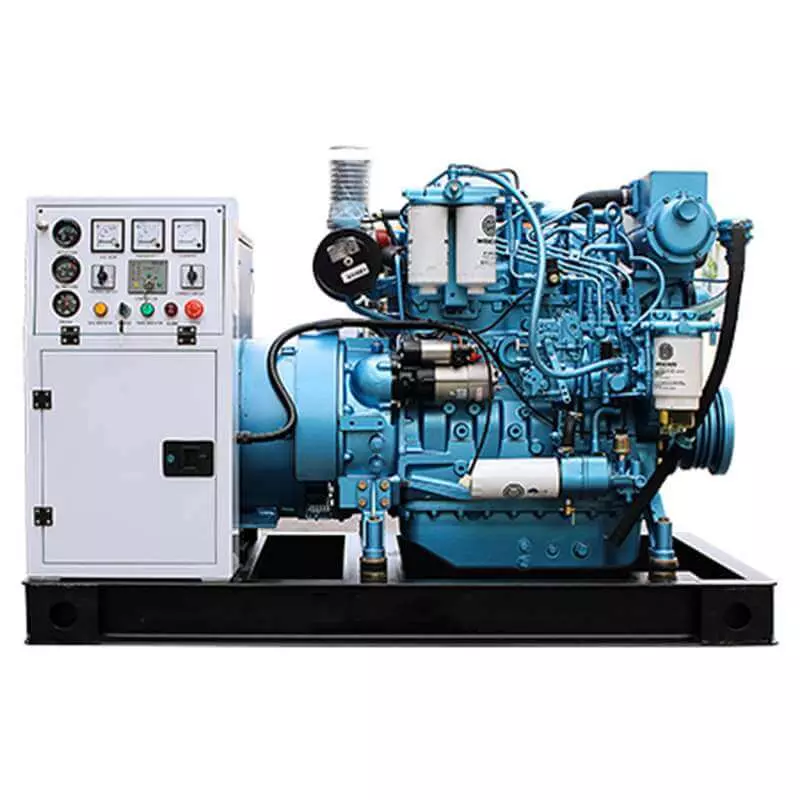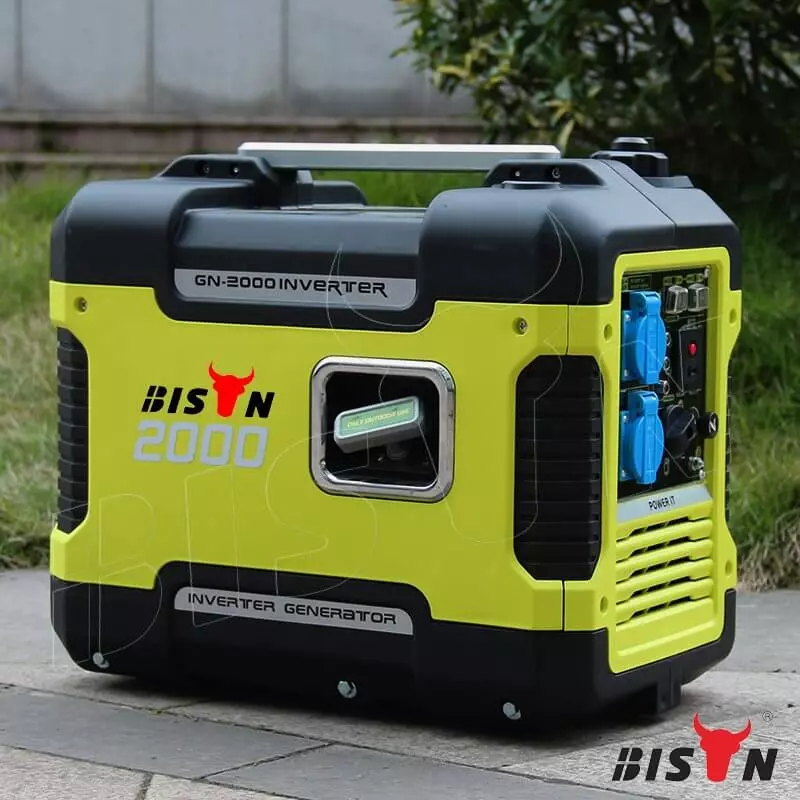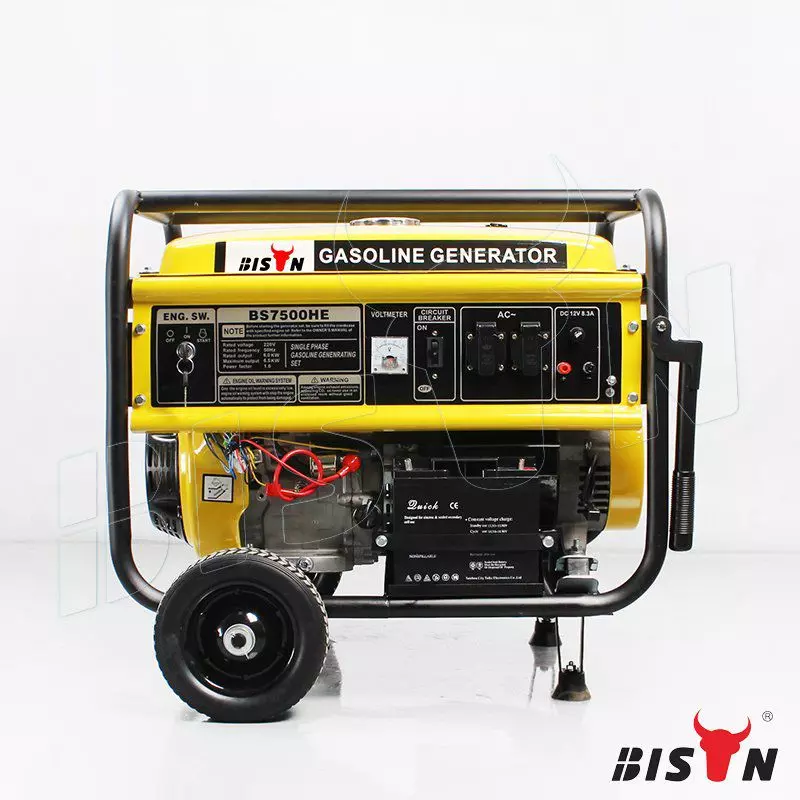11 Ways to reduce generator fuel consumption
2022-11-02
Table of content

11 Ways to reduce generator fuel consumption
When your generator is installed, serviced, plugged in, and running without a hitch, you'll soon start to face common challenges. Your generator isn't going to be fuel efficient, consuming fuel so fast that you can barely keep it full when you need it.
To reduce your generator's fuel consumption, you need to maintain the generator, provide it with fresh air to burn, and ensure the coolant is at the right temperature. In addition, you must use the machine only when needed while ensuring that the machine is never under or overloaded.
In principle, doing this sounds relatively easy; however, knowing the proper temperature when the machine is under excessive load or when to use it requires some knowledge. We recommend that you become familiar with the basics of achieving maximum efficiency.
Reasons why you need to reduce generator fuel consumption
Reducing fuel consumption can help us in two ways.
1. Reduced operating costs
Depending on your region, running a generator set is very expensive. The approximate fuel consumption of an 8kW/10kVA diesel generator at full load is about 2.4 litres/hour. Usually, this is not the case. Actual daily usage often exceeds the average by a considerable amount.
2. Reduce carbon dioxide emissions in the environment
On average, burning a gallon of diesel emits 10,084 grams of carbon dioxide into the atmosphere. That number gets even scarier when multiplied by the number of power plants operating worldwide. Using less fuel means fewer harmful gases are released into our atmosphere. This way, we breathe cleaner air, which helps improve our quality of life.
Having said all that, let's see how to reduce generator fuel consumption.
How to reduce generator fuel consumption
While servicing the generator will quickly help ensure it remains fuel efficient at all times, you need to do further work to help the generator work better. When using generators, there are several things you can do to make generators run more efficiently.
Proper use of a generator while running will allow it to use less fuel overall, and many owners mistakenly think they can run their machines without paying attention. However, it must be noted that the generator will function correctly if you use it for its intended purpose.
Here are eleven ways to reduce generator fuel consumption.
1. Run only the necessary equipment
Running only the necessary equipment reduces the fuel consumption of the generator. This will help reduce fuel consumption by ensuring the generator is only used when necessary.
Additionally, it is critical to ensure that the generator is properly maintained and all filters are clean. If these modifications are made, the generator will be more efficient and consume less fuel.
2. Service your generator on time
Regular servicing of your generator will help you reduce fuel consumption. By servicing your generator, you can ensure it runs efficiently and uses less fuel.
You can do a few things to service your generator and reduce your fuel consumption.
a) Make sure you have the right fuel for your generator. If you use the wrong type of fuel, it can cause your generator to use too much fuel.
b) Change the oil regularly. Over time, oil degrades and may result in increased fuel consumption from your generator.
c) The air filter should be checked. You can increase the fuel consumption of your generator by cleaning the air filter. You should provide professional service for your generator.
3. Do not run the generator below 50% load
If you want to reduce fuel consumption, avoid running generators at less than 50% load. The engine has to work harder to produce the same power, resulting in increased fuel consumption.
4. Removal of carbon deposits
Timely removal of carbon deposits is the main way to reduce the fuel consumption of generators. Over time, carbon builds up on the generator, and if not removed, they cause the generator to work harder and use more fuel. The generator must be checked regularly for carbon deposits and removed as soon as possible.
5. On-time service and with genuine replacement parts

On-time service and with genuine replacement parts
It's no secret that fuel costs for generators can be pretty high. A few things can be done to aid in lowering these expenditures.
First of all, it is crucial to ensure that the generator is serviced on time. By doing this, you will be able to ensure that it runs efficiently and consumes as little fuel as possible.
Also, using genuine replacement parts will help reduce fuel consumption. By using components designed for generators, it will run smoother and use less fuel overall.
6. Use an alternative power source
Using an alternative power source can significantly reduce the generator's fuel consumption. An example might be solar panels, which generate electricity that can be used to power generators. This will reduce the amount of generator fuel required to generate electricity.
7. Choose a high-quality generator
Fuel consumption is a crucial factor to take into account when selecting a generator set. There are several ways to reduce fuel consumption, such as selecting a high-quality unit and properly operating the generator.
A high-quality generator set will have a lower fuel consumption rate than a low-quality one. This is because high-quality units are more efficient and use less fuel to produce the same power.
Proper operation of the generator also helps reduce fuel consumption. This means following the manufacturer's instructions for operating the generator and using it in the most efficient way possible.
8. Never overload your generator
Never overloading the generator is one approach to lower fuel usage. This can be achieved by matching the generator's output capacity to its load.
For example, if a generator with a capacity of 5,000 watts will power two 1,500-watt air conditioners, the total generator load will be 3,000 watts. As a result, the generator is not overloaded and does not work harder than necessary, reducing fuel consumption.
9. Proper ventilation
This is one of the most obvious reasons. Proper ventilation ensures fresh oxygen in the combustion chamber, resulting in proper and complete combustion of the air-fuel mixture.
If the generator doesn't get enough fresh oxygen, the engine consumes more fuel and becomes less efficient.
You may have noticed that generators at sea level work more efficiently than those on the mountains. The more the fresh oxygen generator consumes, the less fuel it burns.
10. Remove carbon deposits
A generator during the combustion phase has all components, including diesel and oil, begin to heat up considerably, causing the grey carbon polymer to adhere to valves, valve banks, injectors, piston tops, and more. Often this will be the source of the black smoke traditionally associated with diesel engines, although it can also contribute to fuel consumption.
Therefore, removing carbon deposits from the generator and cleaning the entire generator as much as possible is always recommended. There are several ways to facilitate this; some of the most common include chemical solutions and hand washing of each component. However, it is best to communicate with the generator manufacturer beforehand to ensure an accurate cleaning process.
11. Ensure the correct cooling temperature
For efficient combustion of diesel fuel, the cooling water temperature must reach the correct standard. If the water temperature is incorrect or meets certain conditions, it will often result in incomplete combustion, leading to increased fuel, which is easily avoided.
What are the factors that affect the fuel consumption of generators?

What are the factors that affect the fuel consumption of generators?
Several factors affect the fuel consumption of a generator.
a) The generator brand may be a factor, as some brands are more fuel efficient than others.
b) The life of the generator also affects fuel consumption, as new generators tend to be more fuel efficient than older ones.
c) Due to their smaller size, smaller generators generally consume less fuel than larger generators.
d) The amount of load or electricity output by the generator also affects fuel consumption.
e) The amount of items that need to be powered by the generator also affects fuel consumption, as more items will require more electricity and therefore use more fuel.
f) Finally, the maintenance of the generator also affects fuel consumption. A poorly maintained generator will consume more fuel than a well-maintained generator.
FAQs
1) Do generators use less fuel with less load?
Note that when the generator is used for a larger load, the fuel consumption will be higher. When used for loads below 50%, fuel consumption is significantly reduced. The generator is a reliable backup power source when the regular supply is interrupted.
2) Does the generator use more gas when plugged in?
If you don't run the generator beyond its capacity, increased load translates into more power and fuel.
3) Can the generator be run without load?
Generators follow the rules of internal combustion engines - they must have a certain load attached to function properly. Running a generator under low or no load conditions can have a range of results that can cause problems, from inefficient operation to severe damage or complete failure.
4) What's the best way to improve generator fuel efficiency?
There is no magic way to improve fuel efficiency; unlike car engines, these machines are already as efficient as possible. Adding turbines or other components to a generator may help with short-term efficiency but can significantly harm the machine's overall lifespan.
The only way to ensure your machine is always running at its best is to ensure it has a good fuel supply and fresh air and is well maintained. This will make it easy to ensure the machine is running correctly when you need to use it and allow it to run as needed.
We've seen many generators barely start before repairs, use almost twice as much fuel as they need, and run fine after repairs. A machine that has not been serviced for a period of time will only work effectively when it is serviced.
5) Can a generator be 100% fuel efficient?
No engine on earth is 100% efficient, and only a few recent engines have achieved nearly 35% efficiency. The challenge is that converting the potential energy in the gas into electricity produces many byproducts that absorb the potential energy.
This means that the movement of the piston, the combustion of the fuel, and ultimately the movement of the electric motor to generate electricity all absorb energy. The engine gets hot due to the energy generated during the combustion process, and the wires also absorb the heat.
Just the fact that electricity enters your house through copper wires will cause some power loss. That's why running a cooler engine is so popular; an engine that needs almost no external heat is so amazing. However, internal combustion cannot be 100% efficient.
6) At what load is the generator most efficient?
Generators are most efficient at 75% load. This means the generator produces the most power when running at 75% capacity.
The load increases the efficiency of the generator. This is due to the fact that when operating at higher loads, the generator can use the fuel it uses more effectively.
Conclusion
Purchasing a generator is a major investment. Using the tips above, when it comes to lowering generator fuel consumption, you can be confident that you're making the best choice for your company. You will also help protect the environment by reducing emissions and saving fuel. If you are still confused about "how to reduce generator fuel consumption", you can contact us for guidance.
Buy from BISON
As one of China's highest-rated fast-growing generator suppliers, BISON is loved by many thanks to the wide range of generators we sell that are sure to exceed in terms of fuel consumption and overall performance.
Want to learn more? If you have the chance, be sure to visit our website. Or, if you would like to contact our support line with any questions about our products or your current generator, please do not hesitate to give us a call.




